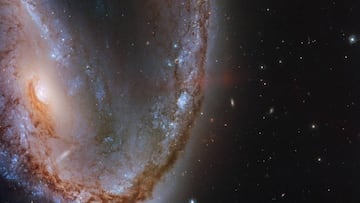NASA warns asteroid is heading towards Earth right before US elections
The asteroid, known as 2018VP1, was first identified by the Palomar Observatory in California in 2018 and is projected to pass near our planet the day before the US elections.

Just when you thought 2020 couldn’t get any worse, NASA has announced that an asteroid is heading towards earth.
If the coronavirus pandemic, record unemployment, a U.S. economy in tatters and countrywide civil unrest weren’t enough, the announcement by NASA will have many Americans wondering what’s next in store during one of the worst years in living memory.
And as faith would have it, the asteroid in question is predicted to come close to earth one day before the US presidential elections.
The asteroid, known as 2018VP1, was first identified by the Palomar Observatory in California in 2018 and is projected to pass near our planet on November 2, according to the Center for Near Earth Objects Studies at NASA's Jet Propulsion Laboratory.
Asteroid 2018VP1 is very small, approx. 6.5 feet, and poses no threat to Earth! It currently has a 0.41% chance of entering our planet’s atmosphere, but if it did, it would disintegrate due to its extremely small size.
— NASA Asteroid Watch (@AsteroidWatch) August 23, 2020
Asteroid poses no threat, says NASA
But if President Donald Trump was hoping for an excuse to delay November’s elections, this will not be it, as the asteroid poses no danger to earth.
"Asteroid 2018VP1 is very small, approximately 6.5 feet, and poses no threat to Earth. If it were to enter our planet's atmosphere, it would disintegrate due to its extremely small size," NASA said in a statement.
Related stories
"NASA has been directed by Congress to discover 90% of the near-Earth asteroids larger than 140 meters (459 feet) in size and reports on asteroids of any size."
NASA said that the chance of the asteroid hitting the earth is about 0.41%, as data shows.

